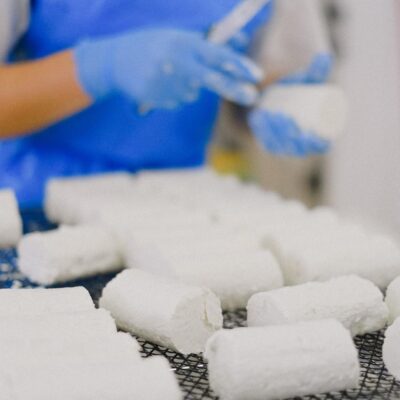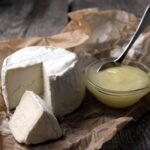No, dogs should not eat goat cheese due to its lactose and high fat content. Goat cheese has the same amount of lactose as cow’s milk, therefore, it can lead to digestive issues even in dogs who can usually handle dairy products. The cheese is also high in saturated fats and eating too much of it can lead to serious health issues.

Caution: This food is generally considered risky by the veterinary community. Dogs should not eat this food and should be monitored for adverse effects.
| Food Safety | Not toxic but should be avoided. |
| Nutritional Issues | High amounts of lactose and saturated fats can lead to multiple health issues. |
| Potential Risks | Gastrointestinal issues due to lactose and fat. Obesity and pancreatitis due to overconsumption of saturated fats. |
| Symptoms | Vomiting, diarrhea, abdominal pain, lethargy. |
How Much Goat Cheese is Bad for Dogs?
No amount of goat cheese can be declared completely safe for dogs. However, most dogs can eat a bit of goat cheese as a treat occasionally. Feeding your dog more goat cheese than that can lead to health issues.
What to Do If Your Dog is Sick from Eating Too Much Goat Cheese?
Since goat cheese is not toxic, the symptoms of overeating goat cheese will mostly be digestive distress. You can treat the symptoms at home and ensure your dog remains hydrated. However, if the symptoms are severe, you might need to contact your local veterinarian for intravenous fluids and antiemetics for vomiting.
Frequently Asked Questions
-
Some dogs with lactose intolerance or other allergies might experience an allergic reaction to goat cheese when eating it for the first time.
-
A tiny amount of goat cheese should be safe for most dogs. However, eating too much can lead to health issues.







